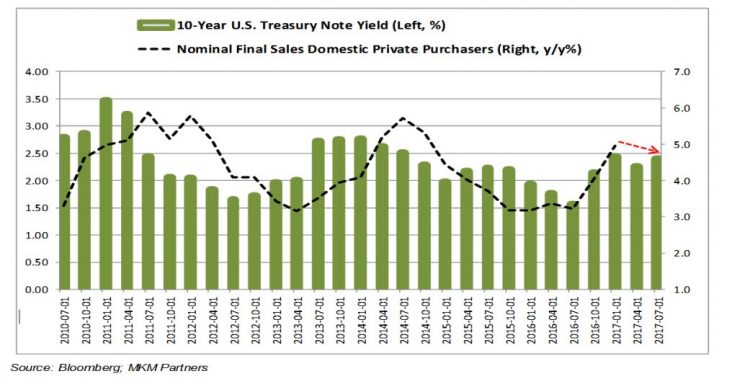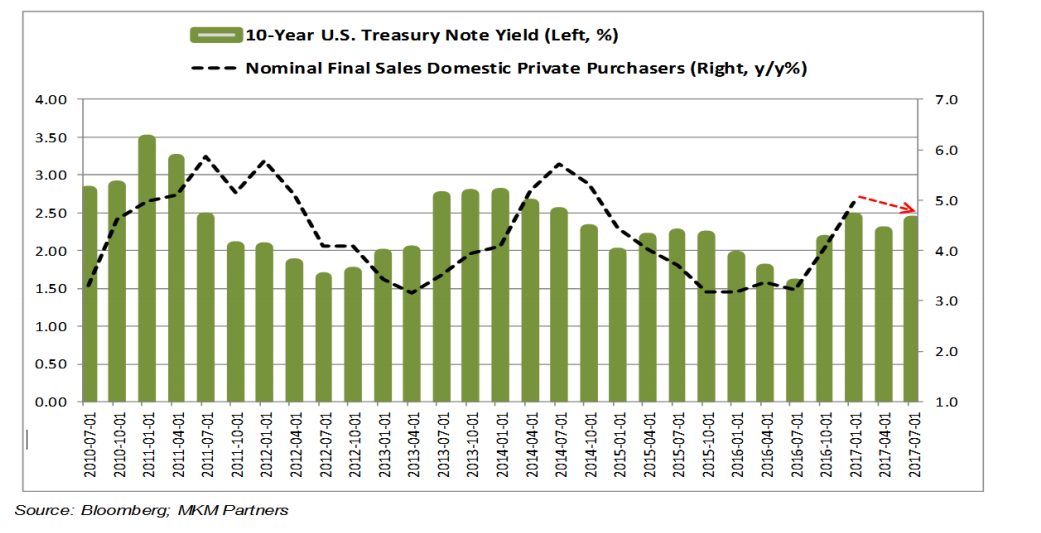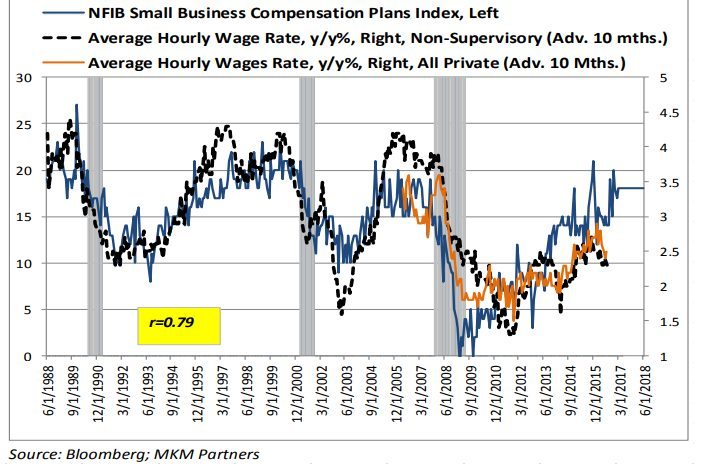
Add MKM Partners Chief Economist & Market Strategist Michael Darda to the increasingly long list of analysts who are looking for the US Federal Reserve to start a balance sheet diet in September. Oh, and about those recent moves higher in the US Ten Year Note, don’t worry, dear investor. There is a relative value analysis at play as rising interest rates could continue.

Rising interest rates impact stock market valuations, but this time it could be different
The traditional analysis regarding the relationship between stock valuations and interest rates is accurate.
“Yes, it is true that all else equal, rising discount rates will pressure stock valuations, especially those in richly priced rate sensitive sectors,” Darda observed in a July 11 piece “Don’t Worry About Rising Yields, Part II.”
The “risk free” rate of return generated through government bonds is often at the low end of the risk curve, while stocks are at the higher end demanding more potential returns profitability per dollar invested. When rates start to rise, the entire risk curve shifts as well, potentially lowering the price / earnings multiple investors are willing to pay. Such is the recipe for a stock correction during normal times.
But these are anything but “normal” times.

Darda: Investors should welcome rising interest rates
Looking at the impact of long rates on stocks, there is a recency effect that might make “this time different” for stocks in a rising interest rate environment.
While Nomura’s Richard Koo thinks that, in part, falling real interest rates in the form of more competitive business loans might occur as the US Fed Funds rate rises, Darda notes a different corollary. He observes that over the last eight years the level of long rates has more or less positively correlated with cyclical momentum.
“Removing the so-called risk premium weakens rather than strengthens that relationship,” he wrote. “Thus, the recent firming of the 10-year Treasury yield should be welcomed rather than feared.”














